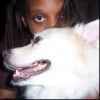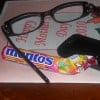When did "you're" officially become "your"?
OK. I think I've just developed a pet peeve. I'm so tired of seeing perfectly intelligent people use "your" when they mean "you're". I've read three articles today and "your" has reared its ugly head in all of them. I'm not normally so picky, but this is a real irritant. (And, yes, I am a little grouchy today.)
I don't think it every did. I think that one can quite clearly see the level of education of people who confuse you're with your. The moment I see that, I switch off from that person. To me, it's the equivalent of someone saying 1 + 1 = 3.
This article is NOT written by me, but it certainly says what I want to say...
http://lifehacker.com/5930680/i-wont-hi … -heres-whyI know people who are extremely intelligent at maths and science but stuff up simple grammatical rules. Does that mean if they make a scientific discovery I should ignore them because their genius is not all encompassing and they have better things to do than nit pick their own grammar?
I find it difficult to believe that people who are extremely intelligent at math and science can't spell. Did you know that the Mensa test relies heavily on spelling, grammar, meaning of words, logic, and math?
It's highly unlikely that one can do math at any sort of advanced level and not know basic grammar. Sorry, you'll actually have to provide proof of that to me.
I do know that people who are good at woodwork or auto engineering very often can't spell, but that's not the same thing as math and science.None of these were mathematicians or scientists, and Einstein came from Berlin. He was at University with my father, so I know that. German was his home language.
Where are the mathematicians and scientists you mention?
Also, these were writers, so I find it difficult to believe that they couldn't spell. Says who? Okay, just read your link a bit more. Saw that their editors corrected some of their writing, but still they weren't mathematicians or scientists.Do your own research then.
 That took me two minutes to find, so go ahead and provide me with proof intelligence in language is directly related to mathematical and scientific intelligence.
That took me two minutes to find, so go ahead and provide me with proof intelligence in language is directly related to mathematical and scientific intelligence.There is very little real intelligence in language - it is rote learning that requires little thought and NO original thinking. Some people have a knack for that type of learning (straight memorization without original thought) and some don't. Memorizing comes easy to some and to some it does not.
Math and science in general, on the other hand DO require thought and reason - intelligence in a nutshell.I'm terrible at math and science but a decent speller, I think. Now it makes perfect sense, more confirmation of my non-intelligence.
Well, of course you're not expressing your sincere belief that it's become official that grammatical and word precision has lost its (okay, their) importance. I honestly believe that at the end of the hub-writing process, many are weary of the myriad edits still necessary and maybe decide to wait 'til later to fix a sloppy over-looking of bad hyphenation, spelling, and of course the classic "to/too" switcheroo which occurs more out of habit than out of ignorance. Just offering my $.02 by ending with an incomplete sentence!

The Mensa test uses language to measure intelligence - as I said. I've done enough I.Q. tests in my life to know, and I'm not talking about the dumbed down tests they have in the USA. They aren't I.Q. tests.
I've run through a lot of the Mensa stuff casually, Sophie, but haven't had the confidence to go through any of the testing -- or the belief that I'm up to their standards. I'd be really interested to learn more about the difference between US IQ tests and those from other places or organizations. Maybe this could be the subject of a new hub for you?
I believe you meant, "None of these was a mathematician or a scientist..."
Oh, it's not hard to believe. I am just one credit hour short of a math degree but still have trouble with its and it's and am a little shaky on exactly what a pronoun is. I hated english more than any other subject all through my school years and did just enough to squeak by. As a result nearly all of my grammar comes from reading thousands upon thousands of novels.
I might suggest as well that auto engineering is very heavily dependent on math, and science as well. How many square inches of brake pad do you need to slow a 3500 # auto from 100 mph to 35 mph in a reasonable time (don't forget it is faintly horseshoe shaped)? While at the same time what kind of materials should go into that pad to provide friction without the heat and pressure tearing it apart? How many square inches of brake rotor are needed to provide adequate cooling area in 110 degree weather with a 100 mph wind? How thick should it be to prevent excessive warping under the heat of stopping, while at the same time maintaining minimum vehicle weight to provide better gas mileage?
You don't appear to be much of an expert in auto engineering, but then what you call "basic" grammar is basic only to an expert such as yourself. The rest of us, untrained as we are, must muddle through as best we can.
I will say, though, that the rule that contractions need an apostrophe is pretty simple and applies to every contraction. That should make it easy enough for anyone writing here to understand.I'm just curious. How much of this math do you do on calculators? When we were at school in the 50s and 60s, everything was done inside one's head. One could use a slide rule from university on, but that was about it. Calculators had not yet been invented.
When someone speaks to me about people being brilliant at math, I'm thinking of the type of genius that invents things, not parroting what one has been taught.
My comment referred to brilliant mathematicians, not people who could ordinarily do math. I have seen no proof that scientists and mathemeticians en masse of the type who win Nobel prizes, make major discoveries, etc., can't spell or write grammatically I just don't believe it.Sophia, I hate to point this out, but look at your first post. Everyone makes mistakes sometimes.
Before you start passing judgement, perhaps you ought to take a look at a few of your hubs. Atrocious!!!
If it takes someone more than 20 years to notice how to properly use "it's," then that's not a learning curve I'm comfortable with.
Ha! Love it!!! Great article, Sophie. Thanks for sharing.
ETA: And........I skipped over to the HP blog to catch up, and promptly ran into this gem:
We are making changes to the Hub Hopper and it’s placement on the site to help us quickly identify Hubs to feature across HubPages Topic Pages, Related Hubs and the Best, Hot and Latest Hub feeds.
I read just one of your hubs. In the lead, I found two grammatical errors. One was a missing comma in a compound sentence, and another error was a superfluous word. All I read of your work was that lead.
 However, keep your chin up. No one's perfect!!
However, keep your chin up. No one's perfect!!Just took a quick look at your profile: 11 year old should read 11-year-old. Didn't read further.

My five hubs were penned in jest, by the way, in case you decide to have a look.
I certainly do not expect my writing to be error free. That's the whole point. BTW, as to hyphenating "11 year old," according to the AP Stylebook, it depends on where the "11 year old" is in the sentence. It is not always hyphenated. For example you would hyphenate this:
A three-year-old bridge,
However you wouldn't hyphenate it like this:
The law is eight years old. (11/26/07)
So, in my profile, the lack of hyphenation is correct.
Although this isn't a grammatical error, don't get me wrong. I fully expect you could find a bunch of errors in my hubs and my profile. That's the point.
Thanks for the input! Now go ahead and find one instance of "it's" instead of "its," "your" instead of "you're" or "there" instead of "their." Oh, and don't forget to look for "than" instead of "then."
BTW, "11 year old Shetland Sheepdog" should be "11-year-old Shetland Sheepdog," and "First Place" should not be capitalized the way you use it. But hey...like you said; no one's perfect.Actually I disagree. The way I use it should not be hyphenated according to the AP Style Book. I'm a bit old-school and prefer to use some of the older rules of the AP Style Book, but this isn't an old rule. As the term "11 year old" comes after the verb, it should not be hyphenated. If it were before the noun "My 11-year-old Shetland Sheepdog Aslan" then it would be hyphenated.
But you are missing the point, aren't you? I'm sure you could find quite a few typos and grammatical errors in my writing, as I did in your writing. That's MY POINT. Unless you are perfect, don't complain about others.LOL!! No, the noun is "Aslan." Sheltland Sheepdog is a noun adjunct describing Aslan. The "11 year old" does not describe Shetland Sheepdog, which is only a breed, but instead the dog himself - Aslan. Hence, there is no need to hyphenate the age.
Whatever you want, Agilitymach. I dare say you've altered the sentence to accomodate your argument -- or perhaps not, depending on what you've understood.
I haven't altered the sentence at all!! LOL!!! It stands as written.

Well, I just looked, and you HAVE altered it. Do you think we're silly?
No I didn't. I did find an error further down in the profile, and updated it. But the sentence in question was left untouched. What I changed was to delete a comma between "Rally title, the RAE" and instead I put in a hyphen to read "Rally title - the RAE." I did this for flow. That was the only change I made. I do not appreciate being called a liar, btw. Check the cache to see if I'm lying.
And yet, you complained about theoretical errors in my work. I would just call them "errors," but you chose not to identify them, and I'm certainly not going to waste my time looking for them.
I do have a current subscription to the AP Stylebook, and I do understand that they are trying to ditch hyphens as fast as they possibly can. I will quietly acquiesce to your "11 year old" vs "11-year-old" when you point me to the appropriate page -- which I'm sure you can. And actually, I look forward to it for my clients' sake.
As to the original subject of this thread, there is a world of difference between scouring stylebooks for appropriate hyphenation and knowing the difference between "its" and it's." It reminds me of the huge difference between cooking a burger and a steak.
So no...I don't think I'm missing the point. But believe me, I didn't miss the fact that you decided to respond to me and not the person who made the correlation between proper grammar and intelligence.
Um, yes. I'm a little tired of the belief system that not everybody can spell or write grammatically. The problem is, and has been, teachers who insist that spelling isn't important and that grammar doesn't matter - so long as the message is understood.
That is complete bull. It does matter.
And the point is exactly as this article says. If someone doesn't have the intelligence to learn spelling and grammar which are incredibly easy, then just how bright are they.?? I have always heard that English is the most difficult language in the world to learn, mostly because the rules aren't constant. Grammar and spelling in English are the same - completely inconsistent.
Have I heard wrong, then, and English is an easy one to learn?Wilderness, my late father wrote and spoke 11 different languages, and he said that English was the ost difficult. He also reported in it as a journalist for Reuters after he left Germany. He continued to write and publish internationally in English (which was obviously not his native language). Obviously in the 40s, 50s, etc., immaculate English was required. I never once saw him make grammar or spelling mistakes.
***********************
And yet you used the word every instead of ever.
Funny how we judge others
It can be due to an error made while thinking and typing too fast. It's a common mistake, and it does not mean someone is stupid.Deborah, you are a smart woman!
How do you tell a person who has criticized someone harshly that he/she also made 25 errors in a single paragraph? I really found those errors in another hub! I do believe that kind advice goes farther than rude criticism, which is mostly ignored. Some people enjoy stepping on others in order to add a few inches to their height.
Hi there, Healthy Pursuits.
I think “your” replaced “you’re” around the same time “no problem” replaced “you’re welcome.” No matter how often this occurs, however, it should never be tolerated or excused. To suggest that “perfectly intelligent people” confuse “your” and “you’re” is being overly generous. People writing for public consumption should learn and follow the rules if they want to attract any recurring readership.
I hope you’re over your grouchiness and you’re back to following your bliss.
+1. It's always so lovely to see your ability to correct or, here, to demonstrate a point so graciously and with a smile.
See Quill, there you go again, being all sensible and everything. If you keep this up, your...ha, ha... you're going to wreck it for all the ruffians and ne'er-do-wells around here. Where is your loyalty to the cause?
Never let it be said that I didn't pull my weight in the conspiracy to bring down the language. As you well know, attracting a recurring readership was never the endgame. !!! (Teach me to use the emoticons, please.)
You must have been reading my hubs. I make so many mistakes.
The critics make mistakes, too. They just do not know it.
Oh my goshhhhhh this is probably one of my biggest pet peeves. You're and your are not interchangeable. Like there, they're or their.
Drives me BANANAS, but I know, most of the time it's accidental.
Here's a laugh (to make you feel better about it):
http://theoatmeal.com/comics/misspellingI know exactly what your talking about. I hate it to. Its like the hole Country has been effected by a poor grammer and spelling virus.
(See what I did there? Sorry. Not to make light of your discomfort, but I couldn't resist).Do you have any idea how many people are dyslexic, mentally ill, or have some other disabling condition that causes them to be slow learners?
Do you have any idea how many people speak English as a second or third language? Do you have any idea how often you make mistakes? Most judges do not.One day I was looking at a job online and there was an entire paragraph where they used the word "we'll" without the apostrophe, "well".
I caught it on the first two words and then saw that they had done it through the entire paragraph.
I know I've often made this mistake: of course, I know it's wrong. The trouble is, spell checkers don't usually pick it up.
You're supposed to proof things not rely on a spellchecker.
Sometimes I forget how to spell words like prostaglandin and rely on a spell checker to correct me.
 They do come in handy.
They do come in handy.Some of the time they are handy. On the other hand, I have often found the one that corrects me when writing hubs to be wrong and end up verifying my spelling with a dictionary. I think it has been contaminated by them durn Aussies!

I just wrote a Hub on this and I do not rely on spell checkers, I use the official dictionary.
As a human being, I can temporarily overlook it.
Did you proofread the hub from which this is taken?
"I’m sure you’ve heard the saying that if you should fake it until you make it."
Should that 'if' really be there?Sophia, do you honestly think that most hubbers write without making a few errors, at least? If you plan to be a harsh critic, you must be perfect unless you want to run the risk of embarrassment. I truly wish you well.
Frequently, at the end of a very busy day when I have penned God knows how many thousand words, I can barely spell my own name, because i'm exhausted. I think intelligence is slippery, you can't pin it down. For example, the artist who can create the most beautiful drawing just from his memory, is he not intelligent? When I worked in a prison I met an inmate who could create the most amazing water colour images, but he literally could not add one and two, nor could he read and write, but he definitely possessed a form of intelligence that I could only dream about.
After reading just one of the OP's posts for a few seconds, I found a comma left out of a compound sentence. It seems it might not be wise to get too crabby and picky.

It's quite easy to make grammatical errors when writing. Proof reading your own work is not going to catch all errors. Someone could easily know the difference between "you're" and "your," but because it is such an easy error to overlook when proofing, it slips by.
However I would agree that it does seem a more common grammatical error than it was in years past.
As far as only intelligent people knowing how to spell, I think that's a silly statement. A person with no education would have no clue how to spell, yet they could be a genius. Intelligence is NOT education. It is simply raw intelligence. Good IQ tests do not take education into the equation and are made to test only raw intelligence.I said "perfectly intelligent people" - I was making no comment on someone being unintelligent. While there was a side thread with a discussion about intelligence, Mensa, science, grammar, etc., it was posted by others.
Your second posting is redundant, as you already complained about my missing comma in a previous post. If I checked your hubs, I'd probably find some errors, too, so don't go all OCD on me.
I don't demand that others be perfect. I was only griping about a pet peeve. It's my party and I can gripe if I want to.If you follow the thread properly, the indentations will show you who is replying to which post. My second post was not in reply to your left out comma, but instead to another person's left out comma. You could tell that by where my post was indented and also which post it followed. Leaving out commas seems to be a common problem.
 As for the intelligence comment, that was to those who were suggesting only intelligent people know how to spell, and those that are poor spellers are, thus, unintelligent. It was not in response to your statement.
As for the intelligence comment, that was to those who were suggesting only intelligent people know how to spell, and those that are poor spellers are, thus, unintelligent. It was not in response to your statement.If someone is looking at this in "threaded" vs. "chronological" view, they won't see any indentations. But again -- nobody's perfect.
I also said that I was a little grouchy today. And it's just been proven.

Oh, well. A stiff drink followed by a good night's sleep, and I'll be my supposedly cheerful self tomorrow.
After carefully reviewing all of the replies, I have came to the conclusion that everyone makes grammatical error. There are also writers' who use English as a second or third language, so writing correctly can be more complicated.
As for intelligence, I was in Mensa and during college my GPA was 4.0 and I still made spelling and grammatical error. With today's technology our fingers get ahead of our brains and sometimes our minds overlook the mistake. Even my professor in college made error with his writing, who cares about you're and your? We need to be more concerned about" their", "there", "they're". lolo! Just kidding! Carry-on my friends carry-on!
If we really wished to get technical all of the titles on many of the hubs are wrong. They should be written AP style.
No, AE, you're, your and yore are far more important than picayune errors such as their and there.

And then there are such egregious things as "everyone makes grammatical errors" and "made spelling and grammatical errors".
Yes, we all make them! And if you search my posts in this thread I'd lay long odds there are least a half-dozen (half-a-dozen? half dozen?)
AEvans, you're missing the point.
A statement was made that even people were brilliantly good at math and science confused you're with your.
I said that it was unlikely because in order to pass Mensa, about a third of the Mensa test is comprised of language. An example would be asking for a meaning of a particular word, and then spelling the word in different ways, e.g. quite and quiet - only there would be four or five different spellings and slightly different words.
So it's highly unlikely that someone who has the intelligence to be brilliant at Math and science can't spell because they wouldn't be able to pass a Mensa test... Please note that I'm not saying that someone who someone who can do math and science at a normal level will be able to spell, but someone who does it at a highly advanced or brilliant level. I also asked for evidence that people who were brilliant scientists and mathematicians couldn't spell. No evidence has been forthcoming.
Next, there's a difference between a typo and a spelling error. Typing too fast results in typos, and it's very easy to see the difference between a typo and a spelling error. For instance, if someone uses your consistently through a piece, and not you're when that is intended, then that is a lack of grammatical knowledge (not even spelling). That has nothing to do with how fast one's brain is going. That's a lack of knowledge. On the other hand, if someone used 'teh' once, and the rest of the time 'the,' then it's a typo. And if they didn't correct it, it means that they didn't proof their work! Then, again, proofing one's own work is difficult.
Not everybody makes spelling errors. Some of us grew up in an age when it was a disgrace to make spelling mistakes. We grew up with the admonition that if we didn't know how to spell a word, then we were to look it up in the dictionary - most people over 60.To think that everyone that is brilliant in science or math (or art or music or anything else) actually cares enough to take the time to memorize the thousands of idiosyncrasies of the English is just a trifle egocentric. It is not a matter of intelligence but one of time and caring.
You may have grown up in an age and place where that was of supreme importance, but most didn't. The ability to communicate well is always important; the ability to communicate perfectly according to the rules of English isn't.Wilderness. It's vitally important to be able to express oneself clearly in the higher echelons of math and science, and it is absolutely and utterly impossible to express any complex idea without correct forms of grammar and spelling. This is particularly so in English.
Many people use double negatives in English, and, of course, English does not have double negatives. The trick then becomes to figure out whether the person means the positive or the negative. There is no such latitude permitted when one is trying to explain complex ideas. I repeat that it's vital to be able to express ideas accurately, and this is not possible without an excellent comprehension of language structure.
It's also impossible to either teach math or understand math that is taught without a solid grasp of language.
For example, look at the sentence, "This boy didn't do nothing." Does it mean that the boy did something or nothing?
The more complex an idea, the more necessary it is to have excellent language skills. Why do you think Sarah Palin and George Bush were laughed at?
In many areas of the world (excluding the United States), one cannot go to University without having excellent language skills for the simple reason that if one cannot explain something with clarity, then all one's skill in worthless.
I wonder why it is, for instance, that America is so behind the rest of the world in Math and Science? Do you think it might have something to do with the fact that people don't have sufficient language skills to teach it well?
Posted 36 minutes ago
To think that everyone that is brilliant in science or math (or art or music or anything else) actually cares enough to take the time to memorize the thousands of idiosyncrasies of the English is just a trifle egocentric. It is not a matter of intelligence but one of time and caring.
You may have grown up in an age and place where that was of supreme importance, but most didn't. The ability to communicate well is always important; the ability to communicate perfectly according to the rules of English isn't.To a point I agree with you, but only to a point. Learning math and science is demanding, yes, and language used to teach is necessary. It is also very precise. If you say "2-1X4=4", for instance, no one learning the subject will think much of you as a teacher. The syntax and format of each and every mathematical sentence is absolutely critical.
It is not so with English - there are a variety of methods and words to express nearly any thought. In addition, if you say (or write) "its" instead of "it's" people may giggle a little that you can't talk right but they will understand what you say anyway.
The thing is, math and science are not communicated with words; the intricate details are communicated with math, where the smallest detail can and does change the entire concept. The language of math must be absolutely perfect to communicate with no errors in syntax. In the formula above the lack of a pair of parenthesis gives a totally erroneous result; the same lack in a common English sentence may make it hard to read but it can be understood. Absolute perfection is not required, and the question of "proper English" is so complex (with differing opinions) that no one can say they know all the rules.
For example, consider your instance of the double negative. If that sentence "The boy didn't do nothing" is translated into the language of mathematics it might become "boy -1 X -1 = ?". The answer is obvious and inescapable - the boy did something. Yet, in English the same sentence leaves confusion. It's why mathematicians and scientists don't speak in English and DO speak in "math".
Are you implying that a person cannot be brilliant unless they have passed the Mensa test? I know several people who have the intelligence to qualify for Mensa who honestly don't care about taking the test(s?) and/or belonging to the organization (society). They have the ability to pass the test and are quite creative, but they do also make grammar, spelling, and punctuation mistakes from time to time.
As for evidence about the language ability of brilliant scientists and mathematicians: how does anyone even come by such privileged information? It seems to me that in this case, "Only their editor knows for sure." {This sentence is an echo of a famous 1960's TV/magazine commercial in the US.} Who among us here has any access to the pre-edited version of the writing of any famous person in the category that you have described? In other's words, how could someone come by the actual proof?
In another thread, psycheskinner made the point that since the Enlightenment the tendency has been to assume that something is false until proven true, not the reverse. That seems to me to be a guideline that could apply to both claims in this discussion - both the claim that brilliant people may confuse your and you're and the claim that they never do. Who has the proof for either claim? Both are mere assumptions.Your Quote:
"They have the ability to pass the test and are quite creative, but they do also make grammar, spelling, and punctuation mistakes from time to time."
The OP was NOT about making occasional mistakes. It was about knowing the difference between you're and your. And I'm sorry, people who are intelligent/educated DO know the difference.
Your Quote:
"As for evidence about the language ability of brilliant scientists and mathematicians: how does anyone even come by such privileged information?"
Exactly, so the claim by someone else that even brilliant scientists and mathematicians weren't sufficiently educated and/or clever enough to know the difference between you're and your is rather silly, don't you think?
Your Quote:
"In another thread, psycheskinner made the point that since the Enlightenment the tendency has been to assume that something is false until proven true, not the reverse. That seems to me to be a guideline that could apply to both claims in this discussion - both the claim that brilliant people may confuse your and you're and the claim that they never do. Who has the proof for either claim? Both are mere assumptions."
Firstly, I didn't make the claim that brilliant mathematicians and scientists didn't know the difference between your and you're. Someone else did. I asked for evidence and said I found it unlikely, and then stated my reasoning. Nobody has refuted my reasoning, i.e. pointed out a flaw or provided evidence to the contrary.In order to respect Disturbia's suggestion that this discussion belongs in a separate thread, I'll be as brief as possible in my response.
1) I disagree with your [SA's] interpretation of the OP. If you reread it, you may see why.
2) I believe all the claims about the intelligence of people who make occasional grammatical and spelling mistakes are silly. The OP did not use these mistakes as a way of assessing a person's level of intelligence.
3) No one has refuted your reasoning, and you have not refuted theirs either.
4) There may be some confusion about confusion (LOL). On the one hand, it can mean a state of bewilderment (which could be caused by other people's garbling or disarray, or by one's own lack of orderliness); and it can also mean the act of creating the disarray. There are other nuances of meaning too. And so, when someone says a person "confuses" your and you're, they might mean that the person does not know the difference between the two words, or they might mean that they accidentally mix up the two, as can happen with typos.
I will be happy to continue this in another thread, but I will not have the time to open one myself.
I actually do agree with the OP's comments about the changing language, but I also agree that the English language in particular is highly resistant to changes in spelling.
This discussion has gone very wide of the mark. I think it's gotten a little silly. People have all kinds of skills, and also have all kinds of errors in both their thinking and their language. That seldom has anything to do with intelligence, as I mentioned above.
And Mensa is also silly. It's just another way for people to claim status.
My gripe was that - a simple gripe. I didn't even mention scientists or mathematicians. This discussion belongs in a thread of its own.I think people who do not know the difference between "you're" and "your" should not be considering a career writing either on or offline.
Anyone can make a typo, but it is not a typo when the same error is repeated over and over in a hub or other article.
These two words are only the tip of the iceberg of course. "Their", "they're" and "there" can be included, as well as all the "its" with their apostrophes. Oh and not forgetting "advise" and "advice" among, no doubt, others.
Whether it is a measure of intelligence/education is debatable.
I know a girl at school who excelled in everything except for English. She is now a highly qualified and senior community nurse, but she couldn't write.
Then again, she isn't on Hubpages pretending she can!
It is my understanding that in following sentence taken from Agility's profile, '11 year old most' certainly should be hyphenated:
"Aslan is my 11 year old Shetland Sheepdog who has been training for agility since he was 12 weeks old."
"Aslan" isn't the only noun in that sentence. "Sheep dog" is also a noun. "11 year old" is describing "sheep dog" and precedes it, so it should be hyphenated. This is basic stuff.No. The "11 year old" describes Aslan - not Shetland Sheepdog. Shetland Sheepdog is a breed and is actually about 90 years old. "Shetland Sheepdog" is a noun adjunct describing Aslan - as does the "11 year old." I could just as easily have written "Aslan is my 11 year old who..." The age describes the dog - not the breed.
OK, it has been years since I learned this stuff, but Aslan and the sheepdog are one and the same. Aslan is the sheepdog. 'Sheepdog' is a noun in this sentence. 'Aslan' is the subject, 'is' is the verb and 'sheepdog' is the object. '11 year old' is describing the sheepdog (and Aslan) and so it should be hyphenated.
I do not remember learning about noun adjuncts at all, but what I found with a quick online search and looked at very briefly gave an example of "beef stew," stating that "beef" is a noun adjunct in this case, because while "beef" is normally a noun, in this case it is describing what kind of stew. Or as in "music stand," where "music" is normally a noun but in this instance it is describing what type of stand. I do not see how this mirrors "Shetland sheepdog" in your sentence.
If you removed "Shetland sheepdog" and said simply "Aslan is my 11 year old who...," 11 year old becomes a noun and the object of "is." I would hyphenate it then, too.
If you wrote "Aslan, my Shetland sheepdog, is 11 years old," then you would not hyphenate it.
I agree with the hyphenation of "my 11-year-old Shetland sheepdog." I do understand, though, that it can be very hard to give up a firmly held conviction, especially when it may feel as if a whole group is lining up against oneself.
I have heard the term "verb complement" used to name a noun or noun phrase that completes the so-called linking verb to be. That is how I would describe "Shetland sheepdog" in this instance. In any case, Shetland could be considered the noun adjunct describing sheepdog (and thus specifying a particular breed), but sheepdog is a noun which is also modified by the word "my" and by the phrase "11-year-old."All interesting, however, I still disagree. Aslan is the noun. The sentence is about Aslan - not the breed he is. The breed describes Aslan. Aslan, however, does not describe the breed. The term "11 year old" describes Aslan - not the breed. Shetland Sheepdog is a term for a type of dog in this sentence, and thus describes the dog - who is Aslan.
Also, a noun adjunt is a noun that if left out of the sentence would leave the sentence still making sense. However, if you remove a true noun from a sentence, the sentence fails to be complete. So, I could say, "Aslan is my 11 year old. He competes in agility." But I could not say "Is my 11 year old Shetland Sheepdog. He competes in agility." and have the sentence make any sense. I believe that is the common "test" for a noun adjunt.
I have enjoyed the discussion, but need to bow out now. I'm going to be away from the computer for a day or so.
And, of course, the whole point is we all have errors in our hubs. I think if we all had great copy editors, that might be minimized. But, as it is, I'm left with myself. And "myself" makes errors.
Oh, btw I would agree with you all on the hyphenation if I hadn't had a copy editor over 20 years ago who was a stickler on this age hyphenation thing. I barely remembered the rule when weekend brought it up, but it's been fun to review it.

I think you are mixed up and/or mistaken on this whole grammar thing, but hey, I may be, also. Do what you will. It is your profile, not mine.
- Sophia Angeliqueposted 11 years ago
0
The difference between it's and its, your and you're is quite simple.
The apostrophe substitutes for another word. If another word isn't intended to be substituted, then there is no apostrophe.
So you would write as follows:
It's a great day today. That would normally be said 'it IS a great day today.' One uses its when there isn't another word being substituted for the apostrophe as in, 'I can't understand its inner workings.'
The same happens with you're and your. The apostrophe substitutes for words that are omitted.
Here are examples.
Your dress is beautiful.
You're beautiful (You ARE beautiful.)
The ability to write this has nothing to do with a lack of intelligence so much as sheer laziness is finding out how the rule works and applying it. It is not rocket science. I completely agree with the guy that said he wouldn't hire someone who couldn't spell properly or didn't use grammar correctly. It says something about either a lack of basic intelligence or a lack of interest in getting something right that is very basic. I wouldn't want either to work for me.Sophia, in your example, a letter (a) has been omitted, not words. In "you're" only one letter of "are" has been omitted. We all make mistakes.
"I can't understand its inner workings" should have double quotation marks, not single, unless the rule is different in your country. If it is, then you can see that HubPages is a world community, and correcting others can be complicated if we are not in tune with each others correct usage.
My point is not to insult you, but to ask you to soften your blows on others as you kindly help them to improve their writing. I will take my own advice.
- Sophia Angeliqueposted 11 years ago
0
Last point over here.
It is an indication of the depths to which our society has sunk when people don't see the importance of being able to express oneself accurately.
Because most people follow the bible (I'm an atheist as you all know), I'm going to take my 'proof' from the bible.
When God wanted to divide man, he made them speak different languages (i.e. the Tower of Babel.). In other words, being able to understand each other, and the means to be able to be able to communicate effectively is recognized even by God. God obviously reasoned that if people couldn't communicate effectively, then they couldn't build something highly complex, i.e. a tower to God. Your may not have officially replaced you're yet, but the writing is on the wall, or should I say on the monitor, and obvious to anyone paying attention. Language is constantly evolving and technology is changing our written language at this very moment with text language, instant messaging, and chat abbreviations. Messages are understood by the receipents whether the grammar and spelling are correct or not and that's all that seems to matter anymore. Unfortunately, this trend is not going away any time soon and I can foresee a time when there will be no more YOUR or YOU'RE because they will have been replaced by the simple and generic UR.
That is never going to happen.
Text-speak is a simple phase, nothing more. Some words will be added to the dictionary because of text-speak but basic grammar rules will not change, especially not simply because some people have never grasped the basics of their own language or because they wanted to write a shortened version of it.Did you know, "Drive Thru" is not picked up by spell check?

These lazy abbreviations have already begun taking over. I have seen light bulb packages saying "Lite" on them... Brace yourselves.The Oxford English dictionary makes new entries every year.
Yes language is evolving and changing, and while I really don't like that the new spellings are acceptable to English-naturalized speaking youngsters just starting out (and therefore may confuse them as they grow), we also have to realise that these new words produced by multi-national companies help break down the language barrier.
For example, Diet Coke is Coca-Cola Lite in Continental Europe. A new word is therefore added to the dictionaries of the French, German, Spanish, Italian, Portuguese, Dutch and any other European language I have forgotten.
The World Wide Web in Spanish is El World Wide Web. Pronunciations may be a problem of course. It pisses me off that they changed 'email' to 'ecorreos'.
How closer we all could have become if we stuck to the same daft name. Email, come on! It's a made-up name (and yes I know it stands of electronic mail), but it was a chance to bring the world together.
I have close relations with the Spanish, as has America with Mexico whether you agree or not.
Most technical internet terms are the same or very similar in either language, because they are new words - internet, (el internet), computer (el computadore), forum (el forum).
So yes, language is changing.
But there is still a basic difference between your and you're.
What does this say?

If you mean that those who are highly advanced and brilliant in math and science don't make spelling errors, you are making an assumption. That is simply not a true statement. Because someone does well on a Mensa test does not mean they will not make spelling and grammar errors. The brain is wired differently in every human being. Spelling perfectly doesn't indicate a high level of intelligence.I can still remember my English teacher rapping my knuckles with a wooden ruler *shudders* because I started a sentence with 'However.' A conjunction only occurs in mid sentence..blah blah. Now, that seems a nonsense, sentences often begin with 'and', that was not heard of when I was at school. I know the difference between they're, there and their, yet sometimes, when I'm typing quickly and have to meet deadlines I'll make those obvious mistakes.
Maybe we should be more interested in the content and give a gentle and polite prod when we notice an obvious mistake- I'm always grateful when someone reminds me.I can guess that pretty much everyone on here knows the difference.
I have made this mistake. I notice that I make mistakes like this when I am multitasking, such as listening to music. Or, when I'm really tired. I have also found that my in-game chat spelling is absolutely TERRIBLE when I am playing a video game. Could have something to do with me watching a virtual terrain instead of paying attention to what I'm typing.
And sometimes proofing doesn't work (obviously). I have seen this mistake in newspapers.To be fair, I think I've forgotten more than I ever knew about grammar.
In other words, operating in a deficit mode.
I simply don't trust myself to remember correctly!
However, with handy dandy search engines, it's very easy to check myself.
I am forever looking up punctuation, spellings, hyphenations and word meanings -- just to be sure.
Don't know about you all, but spell check routinely offers me some really awful choices, none of which turn out to be correct, and some of which I simply scratch my head over.Totally agree with all of your post, not just this bit.
It worries me a little bit that if I develop Alzheimer's, same as my mother, no-one will notice because I am a little bit dizzy already.
Actually, I have already forgotten a lot of basic English grammar.
Someone poke me if I make glaring mistakes. Thankyou!
So your real name is DizzyM but you forgot the "D" in the front, is that it?
Sorry if my language offends anyone; it is not intended to do that.
My first experience with the CyberAngels taught me that certain words in my language (English) are not acceptable.
I studied (and passed) 95 of their damned instructional classes before I found out they were a bunch of chancers.
Good idea, great set-up, pity they are ran by such arse-clenchers.- Sophia Angeliqueposted 11 years ago
0
Science Fact: There is a species of antelope capable of jumping higher than the average house. This is due to the antelope's powerful hind-legs and the fact that the average house cannot jump.
Oh, wait, this is about language not antelopes.
Sorry.
Loved it!
Of course, at out age, heard it before, but I bet plenty of the young ones hadn't!
A place crashed exactly on the border between France and Spain.
Where did they bury the survivors?
Remember it was exactly on the border...Forgive her - Izzy is having a hard time tonight (at 'out" age?). You have to poke her occasionally to straighten her out.

Sorry Izzy - you should have known better.Thank you, Wilderness. It's okay Izzy! At my age, I have a hard enough time keeping up without having to research how a "place" can crash.


Does wilderness crashing for his afternoon nap count here? At my age it happens most days...
There is a lot of ugly feeling towards those who can't spell well. I should say this on the subject: it is impossible for a very stupid person to have very good spelling and grammar, but it is perfectly possible for a very intelligent person to have poor spelling and grammar. I'm referring mainly to dyslexia here, which my brother has and I don't. We're of equal intelligence, are close genetically, and have the same upbringing, so there are clearly more complex processes in action.
Regarding the "your"/"you're" confusion in the more general population, I suspect it's at least partly due to the fact that today people read a lot less printed matter, and a lot more on the internet. Given that there are fewer 'checks' on spelling and grammar online, it's easier to become confused. Although we are all capable of being taught grammatical rules, we learn language best through repetition and use (that's how our brains are wired): if a rule has broken down to some extent in internet usage, we don't see consistent repetition of correct usage.Oops that was a typo and I quite ruined what I was trying to say. It should of course have been "plane"! Sorry about that.

I regularly write "it's" when I mean "its"
Spellcheckers never see it.
I often catch myself, I often do not.
I do proofread my work. Often times it slips by.
I've had my girlfriend, who has a degree in this field from a prestigious university, proofread my work. I had her proofread an article once, which was then read by members (and my mentor) in the apprenticeship program (they all caught a couple of errors I missed since I was in a rush to get a particular article finished). 3 months later I happened to be doing some polishing on that hub. There it was "it's."
I didn't see it when I wrote it, nor did I see it when I proofread it.
My girlfriend didn't see it when she proofread it.
The mentor, and the apprentices never saw it.
Took me months to notice, and when I did it seemed like it stuck out like a sore thumb..no idea how it got missed.
Moral of the story? It happens. There are bad spellers, and there are people who regularly make a particular mistake. Take a chill pill, go for a walk, do something to get your blood flowing, and stop freaking out over something so trivial. There are bigger problems in this world than a few people who regularly make a pretty common mistake...it says nothing of their "intelligence."
Nor does it have anything to do with the sum of 1+1.I wrote this forum thread a month ago, and I admitted on that day that I was grouchy.
As the subject matter makes you unhappy, there's no need for you to answer threads that are a month old and were admittedly written when someone was obviously irritable and out of sorts. (As a matter of fact, it's late and I'm grouchy again. So the timing of your reply might not have been the best.)
I'm sure that I, too, have made all kinds of typos and other mistakes when writing. However, just to be clear, I have the right to be pissed about anything I want to. I can be pissed because my toe nail polish is chipping if I want to. I can also start a thread about it if I want to. If you don't like it, don't read about it. The fact that you would read through this, scroll down and leave such a long comment says that you're freaking out over small things, too. So, join the crowd, honey. We all freak about small things once in a while.
Just as SOME of us can't seem to tell the DIFFERENCE between YOU'RE and YOUR! (excuse me. Momentary loss of control there.)
Related Discussions
- 17
What causes some extremely intelligent people to be well.............UNEMPLOYABL
by Grace Marguerite Williams 8 years ago
What causes some extremely intelligent people to be well.............UNEMPLOYABLE?When one hears the word unemployable, people visualize a person with below average, even low intelligence. They seldom visualize a very intelligent person being unemployable. They reason that extremely...
- 15
Will the U.S. ever be tops in math and science?
by Michael S 12 years ago
Will the U.S. ever be tops in math and science?Having lived in Southeast Asia I've seen how non-American youth essentially enter the world being prepped for college; and from a very young age they learn and study intensely, even controversially. But it seems to pay off for them, often right here in...
- 5
Which one is the wiser in your family - your father or your mother ? How can you
by Abhaque Supanjang 13 years ago
Which one is the wiser in your family - your father or your mother ? How can you say that ?
- 27
Is a college degree a measure of intelligence?
by PaulStaley1 7 years ago
Is a college degree a measure of intelligence?I don't have a degree. Because of that I think I have a chip on my shoulder. I see so many people out there with degrees that are just plain morons. I think, nowadays more then ever, it is more about money, and showing your...
- 11
What makes less educated people pontificate that there are "highly intelligent"
by Grace Marguerite Williams 8 years ago
What makes less educated people pontificate that there are "highly intelligent" people who don'thave college nor graduate degrees while rationalizing that there are college & graduate degreed people who "aren't that intelligent" ? Is there a subconscious envy that...
- 21
Why do you think people who lived during the Victorian Era were more intelligent
by Rain San Martin 8 years ago
Why do you think people who lived during the Victorian Era were more intelligent than people today?According to an article on Phys.com entitled: Researchers Suggest Victorian-Era People More Intelligent than Modern-Day Counterparts", a study was done that proved Victorians possessed higher...



































